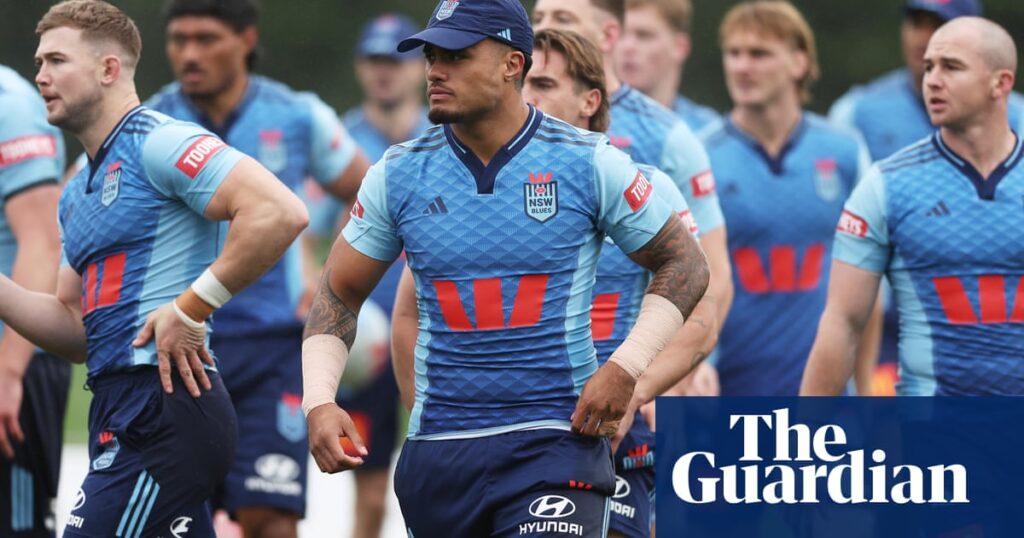
The question posed to New South Wales captain Isaah Yeo was direct and, in any other setting, might have been considered impolite. Yet, this is the State of Origin week—a time when the annual rugby league series stirs passions across Australia. A television reporter, eager to inject some old-school rivalry into his segment, asked Yeo, “Yeoy, we haven’t really felt the hate. Can you give us insight into how much you dislike Queensland?”
Yeo, a seasoned player with four NRL premierships and numerous accolades, understood the intent behind the question. However, he responded diplomatically, “There’s obviously dislike, but you’re probably [asking] the wrong person. I try not to create headlines. I apologise.”
This exchange highlights a broader theme this week, as the media attempts to rekindle the fiery narratives of past Origin series. The Courier Mail labeled Spencer Leniu a “grub” in a headline, following a sideline disagreement between the Blues forward and Queensland great Johnathan Thurston. Despite this, Blues coach Laurie Daley downplayed the incident, suggesting that “grub’s a heavy word” and expressing confidence that Leniu would handle the situation well.
Media Narratives and Player Perspectives
Meanwhile, Maroons coach Billy Slater was asked about the headline, to which he replied, “I haven’t seen that headline, and it wouldn’t have come from anyone internal.” This sentiment was echoed by Yeo, who remarked that the perceived animosity between the teams is largely a media creation. “I don’t think there’s many headlines coming from the players,” he said. “It’s a big occasion, I think the media aren’t liking the fact that there’s not that much hate between players.”
Recent stories have attempted to stir controversy, such as Maroons captain Daly Cherry-Evans being seen chatting with a referee, and a “spying drama” involving a closed New South Wales training session. Yet, these incidents seem to have little impact on the players themselves.
The Changing Face of State of Origin
The State of Origin has evolved significantly in recent years. The focus has shifted from on-field violence and off-field antics to sports science and professional preparation. This transformation is evident in incidents like Joseph-Aukuso Suaalii’s sending off for a high tackle last year—a decision that sparked debate among traditionalists but did not deter audiences. The 2024 series drew millions of viewers, with all three matches ranking among the top sports broadcasts of the year.
“Average audiences for Nine’s NRL games this year are up more than 5%,” notes sports industry blogger Jason Lassey.
The Women’s State of Origin series has also become a significant asset, showcasing the growing appeal of women’s rugby league. Insiders estimate that the series, once financially challenging, is now a valuable broadcasting property worth several million dollars.
Looking Ahead: The Future of State of Origin
As the State of Origin looks towards the future, including the addition of a Papua New Guinea side in 2028, the series continues to thrive. Despite the reduction in off-field drama, the essence of the game remains intact. Billy Slater, reflecting on his two decades in Origin, asserts, “The game is the game, the game sells itself. If you need the bit of feud off the field, well, you’re probably not doing the job on the field. And I think they’re doing the job on the field at the moment.”
This evolution of the State of Origin reflects broader changes in rugby league, where the focus is increasingly on the quality of play and the professionalism of the sport. As the series continues to captivate audiences, it remains a cornerstone of Australian sports culture, adapting to the times while preserving its core appeal.





